Introduction
In the ever-evolving landscape of the gaming industry, securing partnerships with video game publishers is a crucial step for developers looking to elevate their projects to new heights. A successful collaboration with a reputable publisher can provide not only financial support but also invaluable expertise, marketing resources, and widespread distribution channels. In this comprehensive guide, we will delve into the intricacies of securing partnerships with video game publishers, offering insights and actionable steps to help developers navigate this competitive arena.
Understanding the Landscape
Before embarking on the journey to secure partnerships, it’s essential to understand the current state of the gaming industry. Stay updated on industry trends, market demands, and the preferences of publishers. Research potential partners to identify those whose vision aligns with your project. Familiarize yourself with their portfolio, past collaborations, and the types of games they typically publish. This knowledge will serve as the foundation for a targeted and effective approach.
Creating a Compelling Pitch
Crafting a compelling pitch is the cornerstone of attracting the attention of video game publishers. Start by developing a concise and engaging elevator pitch that encapsulates the unique selling points of your game. Clearly define your game’s genre, target audience, and key features. Highlight any innovative gameplay mechanics, impressive graphics, or unique storytelling elements that set your project apart. A visually appealing presentation, including concept art, gameplay footage, and a polished demo, can significantly enhance the impact of your pitch.
Building a Strong Prototype
Publishers are more likely to consider partnerships with developers who have a tangible and polished prototype. Invest time and resources into developing a playable demo that showcases the core mechanics and features of your game. A well-executed prototype not only demonstrates your team’s capabilities but also provides publishers with a tangible preview of the final product. This tangible evidence can significantly bolster your case during negotiations.
Establishing a Robust Online Presence
An online presence is crucial for attracting the attention of video game publishers. Develop a professional website that showcases your team, project details, and any accolades or awards your game may have received. Utilize social media platforms to create awareness and engage with potential publishers. Regularly update your social media channels with development progress, behind-the-scenes insights, and any positive feedback or reviews your game receives. A strong online presence not only attracts publishers but also builds a community around your game.
Networking and Attending Industry Events
Building relationships within the gaming industry is essential for securing partnerships with video game publishers. Attend industry events, conferences, and networking sessions to meet potential collaborators. Establishing face-to-face connections can make a lasting impression and increase the likelihood of getting noticed. Be prepared to discuss your project confidently, exchange business cards, and follow up with personalized emails expressing your interest in collaboration.
Researching and Targeting the Right Publishers
Not all publishers are the same, and finding the right fit for your game is paramount. Research potential publishers thoroughly, taking into consideration their track record, market focus, and the types of games they typically publish. Tailor your pitch to align with the publisher’s preferences and showcase how your game complements their portfolio. A targeted and well-researched approach increases the chances of capturing the interest of the right publisher.
Creating a Business Plan
Developing a comprehensive business plan is essential for demonstrating the financial viability of your project. Outline your budget, projected revenue streams, and marketing strategy. Clearly articulate how the partnership with the publisher will contribute to the success of the game and the mutual benefits of collaboration. Publishers are more likely to invest in projects with a well-thought-out and transparent business plan.
Negotiating Terms and Conditions
Once you’ve captured the interest of a publisher, the negotiation phase begins. Be prepared to discuss terms and conditions, including funding, revenue sharing, marketing support, and intellectual property rights. Seek legal advice to ensure that the agreement is fair and favorable for both parties. Be open to compromise while also standing firm on key aspects that are crucial for the success of your game.
Protecting Intellectual Property
Securing partnerships with video game publishers involves sharing sensitive information about your game. Prioritize the protection of your intellectual property by clearly defining ownership rights and confidentiality clauses in the agreement. Consider consulting with legal professionals who specialize in intellectual property law to ensure that your interests are safeguarded.

Top Online Education Platforms to Learn About Video Game Industry and Publishing ?
Securing partnerships with video game publishers is a pivotal step toward success. However, understanding the intricacies of this process and mastering the art of partnership negotiations can be daunting for aspiring developers. Fortunately, online education courses platforms offer a wealth of resources to help developers navigate this competitive landscape with confidence and expertise.
In this comprehensive guide, we will explore the top online education courses platforms that provide specialized training on securing partnerships with video game publishers. From mastering pitch techniques to negotiating favorable terms, these platforms offer valuable insights and practical skills to empower developers on their journey to collaboration success.
Udemy
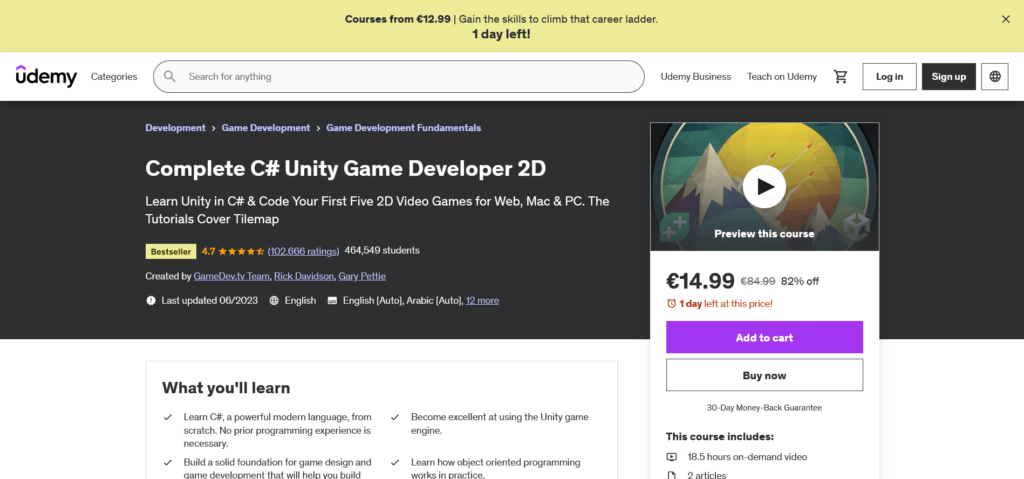
Udemy offers a diverse range of courses on game development and business strategy, including specific modules dedicated to securing partnerships with video game publishers. Courses cover topics such as crafting compelling pitches, conducting market research, negotiating terms, and protecting intellectual property. With on-demand access to expert instructors and interactive learning materials, Udemy equips developers with the knowledge and skills needed to navigate the partnership landscape effectively.
Coursera
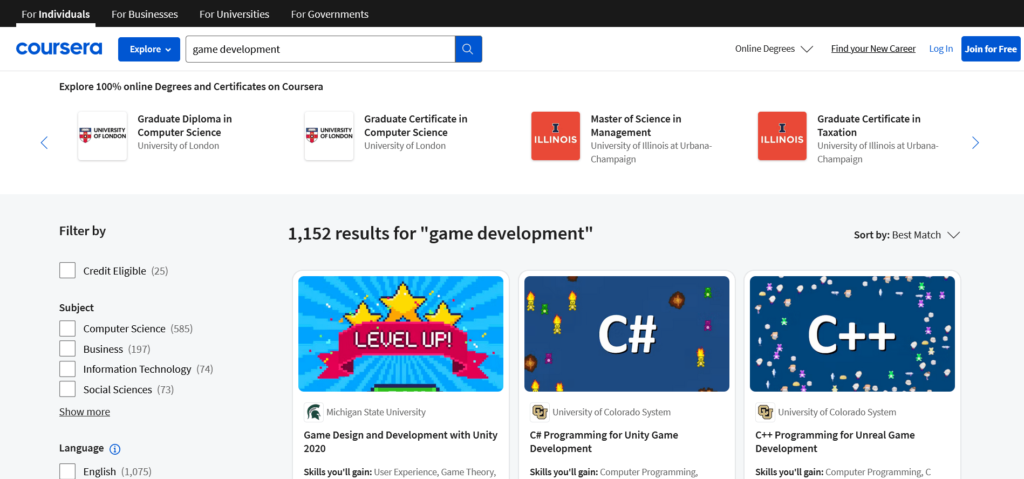
Coursera partners with leading universities and industry experts to offer specialized courses on game development and entrepreneurship. Developers can enroll in courses that focus on securing partnerships with video game publishers, providing in-depth insights into the negotiation process, business planning, and strategic decision-making. With a flexible learning format and peer-reviewed assignments, Coursera enables developers to learn at their own pace while gaining practical skills applicable to real-world scenarios.
LinkedIn Learning
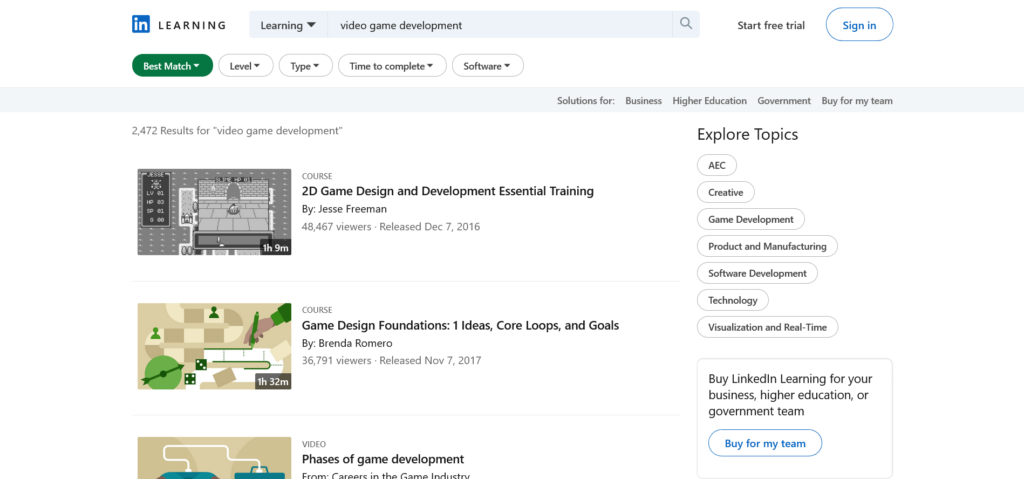
LinkedIn Learning offers a variety of courses tailored to the needs of game developers and entrepreneurs. Developers can access courses on partnership strategies, negotiation tactics, and business development, led by industry professionals with extensive experience in the gaming industry. With personalized recommendations and access to a global network of professionals, LinkedIn Learning provides developers with the tools and insights needed to forge successful partnerships with video game publishers.
Skillshare
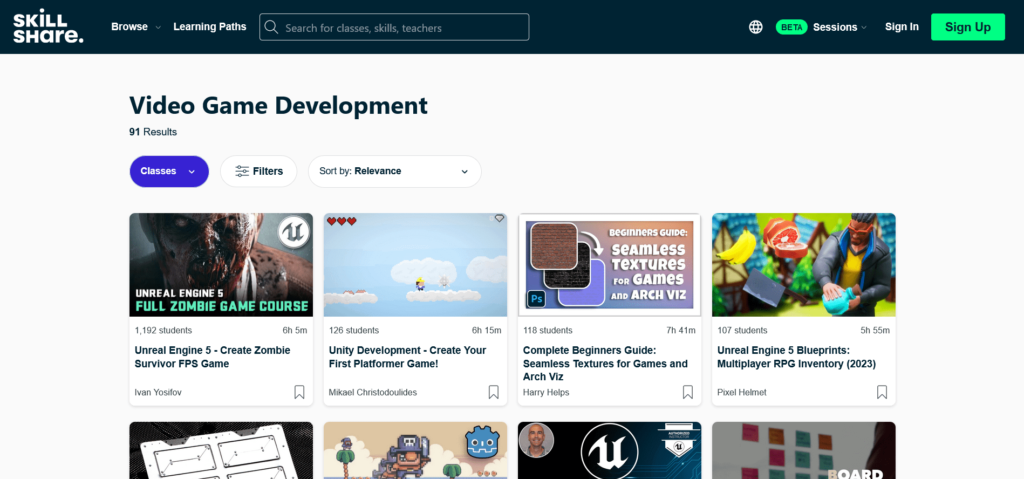
Skillshare features a wide range of courses on game development, entrepreneurship, and creative business strategy. Developers can enroll in courses that delve into the nuances of securing partnerships with video game publishers, covering topics such as pitching techniques, market analysis, and contract negotiation. With hands-on projects and collaborative learning communities, Skillshare empowers developers to hone their partnership skills and connect with like-minded peers in the gaming industry.
Pluralsight
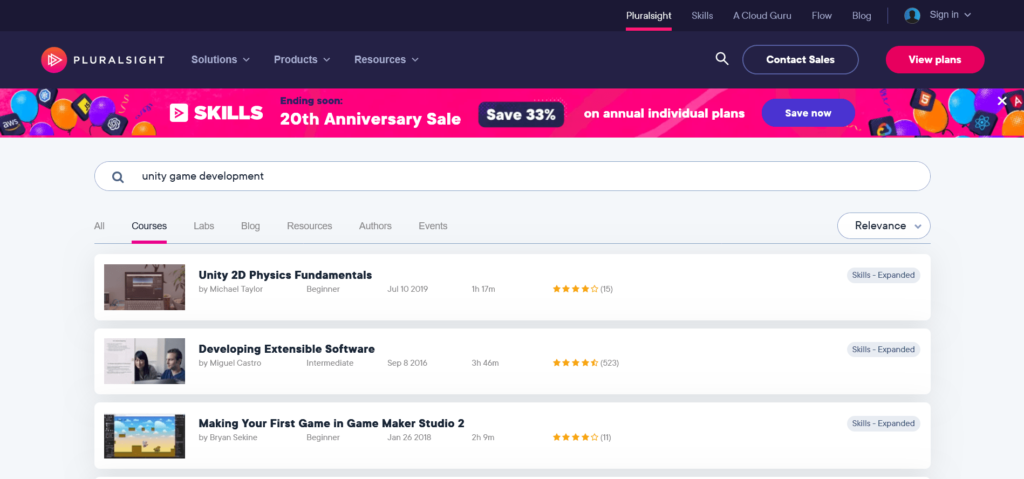
Pluralsight offers a comprehensive library of courses on game development, project management, and business strategy. Developers can access courses that provide step-by-step guidance on securing partnerships with video game publishers, from crafting initial pitches to finalizing contractual agreements. With expert-led content and interactive assessments, Pluralsight equips developers with the knowledge and confidence to navigate the partnership process successfully.
Top 10 Most Searched Questions and Answers on Finding Great Video Game Publisher
1. What qualities define a great video game publisher?
A great video game publisher possesses qualities such as a strong track record of successful releases, a clear understanding of market trends, robust distribution channels, effective marketing strategies, financial stability, and a collaborative approach towards developers.
2. How do I research potential video game publishers?
Research potential video game publishers by exploring their portfolio, past releases, industry reputation, financial stability, distribution network, marketing efforts, developer testimonials, and reviews from other developers who have partnered with them.
3. What should I look for in a video game publisher’s portfolio?
When evaluating a video game publisher’s portfolio, look for diversity in genres, quality of releases, commercial success, critical acclaim, developer support, and alignment with your project’s vision and target audience.
4. How do I approach video game publishers for consideration?
Approach video game publishers professionally by crafting a compelling pitch that highlights your game’s unique features, target audience, market potential, and alignment with the publisher’s portfolio. Tailor your approach to each publisher and demonstrate how your project fits into their strategic vision.
5. What questions should I ask video game publishers during initial discussions?
During initial discussions with video game publishers, ask questions about their development process, marketing strategies, distribution channels, financial terms, developer support, creative control, timeline for release, and expectations for the partnership.
6. What are common red flags to watch out for when evaluating video game publishers?
Common red flags when evaluating video game publishers include poor communication, lack of transparency, unrealistic promises, restrictive contractual terms, unresolved legal issues, financial instability, and a history of unsuccessful releases.
7. How do I negotiate favorable terms with video game publishers?
Negotiate favorable terms with video game publishers by conducting thorough research, seeking legal advice, clearly defining your expectations, demonstrating the value of your project, and being prepared to compromise while safeguarding your interests.
8. What are the benefits of partnering with established video game publishers?
Partnering with established video game publishers offers benefits such as access to funding, marketing resources, distribution channels, industry expertise, credibility, visibility, and the opportunity to reach a wider audience.
9. How do I protect my intellectual property when partnering with video game publishers?
Protect your intellectual property when partnering with video game publishers by incorporating confidentiality clauses, defining ownership rights, seeking legal advice to draft a comprehensive agreement, and ensuring that your interests are safeguarded throughout the partnership.
10. What are successful examples of partnerships between developers and video game publishers?
Successful examples of partnerships between developers and video game publishers include collaborations that have resulted in critically acclaimed and commercially successful releases, such as partnerships between independent developers and major publishers that have led to innovative and impactful games.
By addressing the most searched questions, developers can gain valuable insights and guidance to navigate this dynamic landscape and unlock the doors to successful partnerships in the vibrant world of video game publishing.
Conclusion
Securing partnerships with video game publishers is a challenging yet rewarding endeavor for developers aspiring to bring their projects to a wider audience. By understanding the industry landscape, creating a compelling pitch, building a strong prototype, establishing a robust online presence, networking, researching and targeting the right publishers, creating a business plan, negotiating terms and conditions, and protecting intellectual property, developers can navigate this competitive arena successfully. With dedication, preparation, and a strategic approach, developers can unlock the doors to collaboration and pave the way for the success of their games in the dynamic world of video game publishing.














